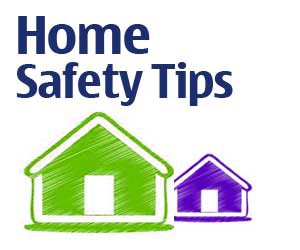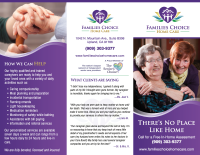Relying on home care for elderly seniors is an increasingly viable and popular elder care option, but it’s still important to make sure you understand home safety tips for seniors and your loved ones are aware of the potential dangers in one’s home and prepare accordingly. Please use the following home safety tips for seniors to help your loved one stay safe while living at home.
General
- Consider a medical alert or a buddy system.
- Keep a fire extinguisher and smoke detector on every floor.
- Always get up slowly after sitting or lying down. Take your time, and make sure you have your balance.
- Wear proper fitting shoes with low heels.
- Use a correctly measured walking aid.
- Remove or tack down all scatter rugs.
- Remove electrical or telephone cords from traffic areas.
- Avoid using slippery wax on floors.
- Wipe up spills promptly.
- Avoid standing on ladders or chairs.
- Have sturdy rails for all stairs inside and outside the house.
- Use only non-glare 100 watt or greater incandescent bulbs (or the fluorescent equivalents).
- Staircase steps should have a non-slip surface.
Bathroom
- Leave a light on in your bathroom at night.
- Use recommended bath aids, securely installed on the walls of the bath/shower stall and on the sides of the toilet.
- Skid-proof the tub and make sure the bath mat has a non-slip bottom.
- Use door locks that can be opened from both sides.
- If possible, bathe only when help is available.
Kitchen
- Keep floors clean and uncluttered.
- Illuminate work areas.
- Mark “on” and “off” positions on appliances clearly and with bright colors.
- Store sharp knives in a rack.
- Use a kettle with an automatic shut off.
- Store heavier objects at waist level.
- Store hazardous items separate from food.
- Avoid wearing long, loose clothing when cooking over the stove.
- Make sure food is rotated regularly. Check expiration dates.
Drug Safety
- Review your medicines frequently with your doctor or pharmacist and when you take new medication.
- Make sure medicines are clearly labeled.
- Read medicine labels in good light to ensure you have the right medicine and always take the correct dose
- Dispose of any old or used medicines.
- Never borrow prescription drugs from others.
- Check with your doctor or pharmacist before mixing non-prescription drugs and prescription drugs.
Reprinted from:
http://home-care.aplaceformom.com/

Home Safety for Seniors





